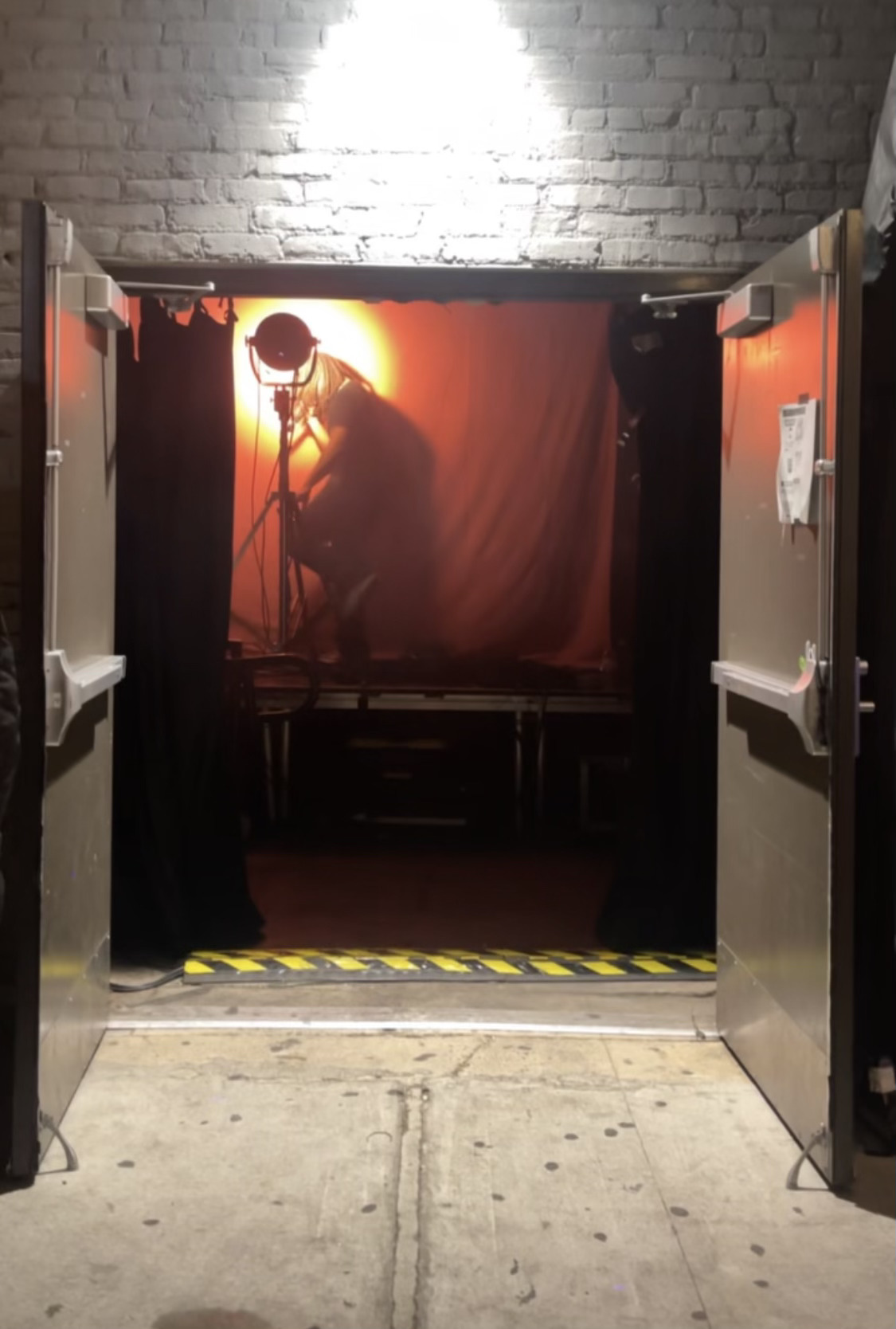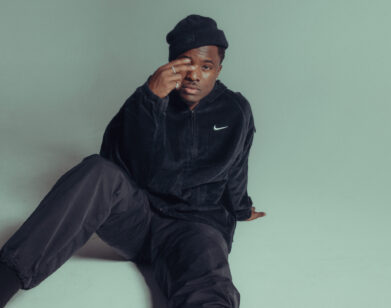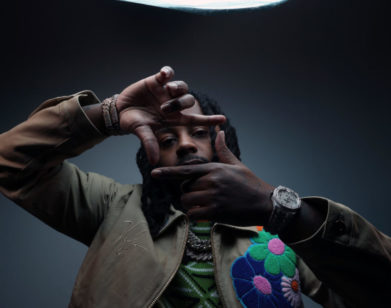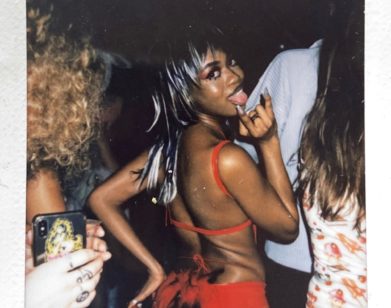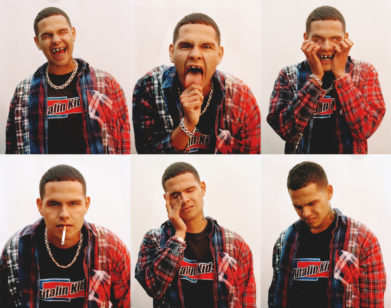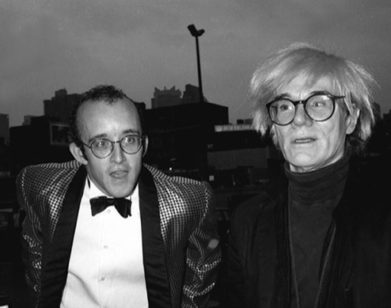photo diary
When Injury Reserve Goes On Tour, No Fire Alarm is Safe
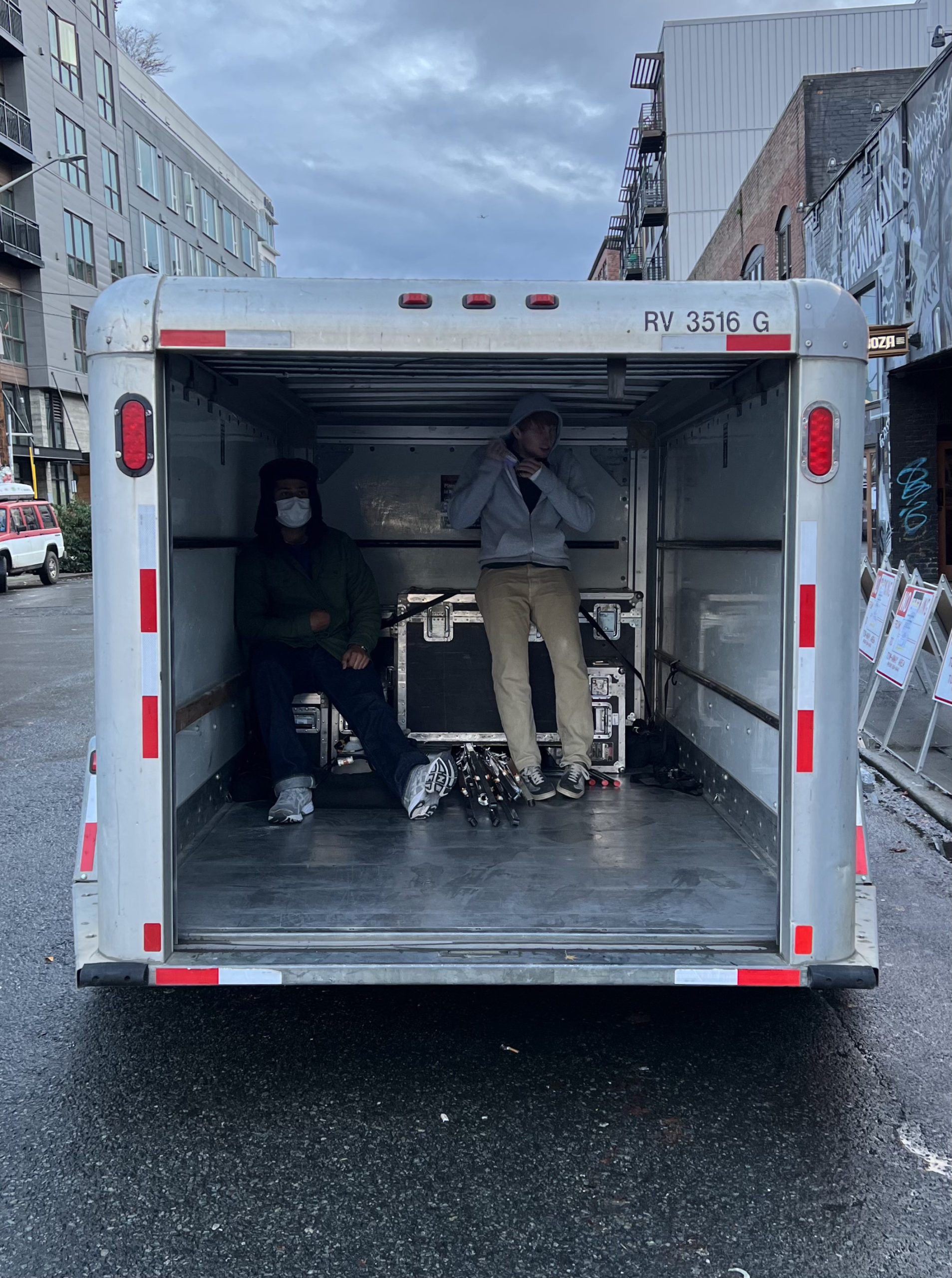 Injury Reserve makes rap music like you’ve never heard it before—and they wouldn’t have it any other way. The group, which consists of members Ritchie With a T, Stepa J. Groggs, and Parker Corey, first emerged on the rap scene with their breakout mixtape, 2015’s Live From The Dentist Office. The album, recorded at the office of Corey’s dentist grandfather, set the tone for the idiosyncratic and innovative rap style that the trio has continued to perfect in the following years. Injury Reserve has been steadily gaining momentum ever since, cultivated a loyal fanbase with two EPs, two mixtapes, and an eponymous studio album. But last year, the group was rocked by the death of Groggs, a tragedy that significantly altered IR’s internal relationships and sound. To navigate their grief, Corey and Ritchie took a brief hiatus from making music, coming together only to finish their latest album, By the Time We Get to Phoenix. The record’s distinctive, deconstructed feel, born of an impromptu-DJ set Corey performed in Stockholm, emerged as a result of the Swedish venue’s faulty sound equipment. Recorded when Groggs was still alive, By the Time We Get to Phoenix is, for Injury Reserve die-hards, a transcendent time capsule from more innocent times. To mark the record’s release, Ritchie and Corey sat down with Interview, in the midst of wrapping up their By the Time We Get to Phoenix tour, for a conversation about loss, pushing sonic boundaries, and fire alarms.
Injury Reserve makes rap music like you’ve never heard it before—and they wouldn’t have it any other way. The group, which consists of members Ritchie With a T, Stepa J. Groggs, and Parker Corey, first emerged on the rap scene with their breakout mixtape, 2015’s Live From The Dentist Office. The album, recorded at the office of Corey’s dentist grandfather, set the tone for the idiosyncratic and innovative rap style that the trio has continued to perfect in the following years. Injury Reserve has been steadily gaining momentum ever since, cultivated a loyal fanbase with two EPs, two mixtapes, and an eponymous studio album. But last year, the group was rocked by the death of Groggs, a tragedy that significantly altered IR’s internal relationships and sound. To navigate their grief, Corey and Ritchie took a brief hiatus from making music, coming together only to finish their latest album, By the Time We Get to Phoenix. The record’s distinctive, deconstructed feel, born of an impromptu-DJ set Corey performed in Stockholm, emerged as a result of the Swedish venue’s faulty sound equipment. Recorded when Groggs was still alive, By the Time We Get to Phoenix is, for Injury Reserve die-hards, a transcendent time capsule from more innocent times. To mark the record’s release, Ritchie and Corey sat down with Interview, in the midst of wrapping up their By the Time We Get to Phoenix tour, for a conversation about loss, pushing sonic boundaries, and fire alarms.
———
JACKSON WALD: Sonically, this album is a departure from your past projects. Was there a moment, that triggered this experimental change? Or has it been a more natural, gradual shift?
RITCHIE WITH A T: It’s almost like a workout. If you keep doing the same workout, you’re not growing. We’ve been doing this together for a while and I think the only way that we were gonna feel really passionate and confident, and really love the process of making new music was to push ourselves to make stuff that if we were to hear it on the radio, would make us say, “Whoa, What’s this?” So to me, it’s about boredom and competitiveness. On our previous record, we definitely worried a little too much about questions like, “What is your debut studio record supposed to be like?” On this record, we didn’t really play into anything like that. We just told ourselves, “If we’re gonna do this, we got to have fun doing it and do something interesting.” Because if not, the fulfillment is not going to be there.
PARKER COREY: There’s also a certain intimacy thing, where you spend endless time with, just, sound. In any craft, the more time you spend with it, the more delicate that touch is going to get.
WALD: Have you managed to record at all during your current tour?
RITCHIE: We’ve really been leaning into fully fulfilling this record on the road. Going on the road brought home the emotional side of the record, and we weren’t sure how that was going to feel. At every show, we perform the entire record front to back. It’s our first time doing that. So, that’s allowed us to really realize the record.
WALD: Were there any moments on tour where things went wrong?
COREY: Definitely our L.A. show. At this particular show, the fog machine set off the fire alarm, which immediately cut power onstage, including the speakers. We went backstage, and then this one guy was being a callous asshole about the situation, and then we got into an argument. So this picture is from the beginning of the show, when it was going well.
WALD: What were you guys listening to while recording the album?
COREY: I did a lot of reading, which was the most influential thing for me when it came to sitting down and making beats. A lot of art-politics-theory shit. Mark Fisher was very big when we were working on the video stuff.
WALD: How does reading theory inspire your beat-making? Is it thematic, or do certain words trigger a response?
COREY: It’s like a battery pack sometimes. It adds a little bit of assurance to the necessity of making something new. Something that annoys the shit out of me is seeing how some people have reacted [to the album]. I expected that people were not going to like our album at all, and I felt like an asshole when the reaction was really positive. I felt like I didn’t have enough faith in people, but now I’m retracting all that faith in humanity, because humanity is loving this Silk Sonic album. That shit is everything that our album stands against. And that comes from that theory shit that I was on at the time.
WALD: Is there one song on the album that resonates with you guys, or has more of a significant emotional impact than the others? If so, why?
COREY: I still fall back on my big three: “Superman,” “Knees,” and “Bye Storm.”
WALD: Why those three in particular?
COREY: Well, after Groggs passed, his verse on “Knees” takes on so much more weight. “Bye Storm” feels like something that is holding on to you in a very comforting way. Like a weighted blanket.
RITCHIE: It’s those three for me, too. “Superman,” when I hear that song, it’s just like, ‘This is my type of song in a nutshell.
COREY: So this is probably t-minus four minutes to disaster. This is at our LA show. It’s the first song in our set, called “Outside.” At this particular show, the fog set off the fire alarm, which immediately cut power onstage, including the speakers. We went backstage, and then this one guy was being a callous asshole about the situation, and then we got into an argument. So this picture is from the beginning of the show, when it was going well.
RITCHIE: It was just an argument, though. He claimed that I tried to fight him. I didn’t try to fight him.

